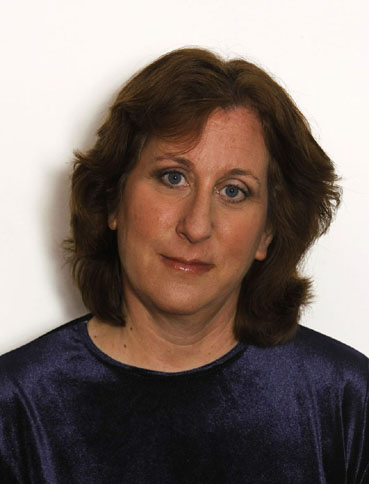NPR Personality Stops in S.B.
Linda Gradstein Offers Her Thoughts on Our Hopes for Peace in the Middle East
NPR Jerusalem correspondent Linda Gradstein spent the weekend hanging out in Santa Barbara as the Rieger Scholar in Residence at Congregation B’nai B’rith. During her stay, she gave three lectures including one on Saturday night entitled, “Is There Still a Chance for an Israeli-Palestinian Peace Deal?”
In this talk Gradstein offered a lucid primer on Palestinian-Israeli relations while throwing in some of her own opinions to boot. She did not, however, say anything too explosive like that she is afraid to fly on airplanes with Muslims as did her recently-fired NPR colleague, Juan Williams.

Gradstein began her talk by telling her audience that she was taking them on a tour of the Middle East. There were only two stops on her tour, however: Iran and Israel. Gradstein believes that a peace deal with the Palestinian people can help to deter a nuclear-armed Iran.
Due to political exigencies, Gradstein believes that Israel is unlikely to engage in a military strike against Iran’s nuclear weapons program. Such a strike would require tacit approval by the United States as well as flyover permission from either Iraq or Saudi Arabia. Even if these obstacles were overcome, a strike would at best delay Iran’s nuclear program by a few years. A nuclear-armed Iran seems inevitable.
Therefore, Israel must focus on deterrence, a task that would be much easier if it could form alliances with other Middle Eastern nations. In 2002, Arab leaders proposed a plan which would offer peace deals with Israel in return for withdrawal from the occupied territories of the Gaza Strip and West Bank. This means that an Iranian attack on Israel would risk reprisals from Israel’s new Arab allies.
Gradstein said, “I think the people on both sides are ready for a peace deal,” before explaining exactly how insuperable the roadblocks to peace actually are.
Two thirds of both Israelis and Palestinians are in favor of a peace deal which would create two separate states of Israel and Palestine. Unfortunately, neither believes in the sincerity of the other side.
In the question and answer session Gradstein’s audience ferreted out exactly how high the mistrust between Israelis and Palestinians runs. When asked if young people are more tolerant than their parents, Gradstein cited a recent survey which found that 50 percent of Israeli high school students said the Arab citizens of Israel should not have the right to vote. Over 60 percent don’t want to attend school with Arabs. And they don’t. Secular Jews, religious Jews and Arabs all attend separate schools starting in kindergarten, which does not help foster trust between these different populations. With such pervasive segregation among the citizens of Israel, it is hard to imagine how Israel can negotiate in good faith with the non-citizens of the occupied territories.
On an optimistic note, Gradstein said that Palestinian security forces have maintained law and order for the past two years. It’s been almost three years since a suicide bomb has been detonated inside Israel. (There have been other attacks, however.) Israel maintains that a withdrawal would depend on the Palestinians’ ability to provide their own security.
Gradstein mentioned that usually when she says to a Jewish audience that Israel must cede portions of Jerusalem to get a deal done, audience members tend to gasp. Her audience in Santa Barbara, however, met that assertion with equanimity. Had Gradstein known the local results of the midterm elections held just a few days earlier, she might not have been so surprised at her listeners’ liberal leanings.



